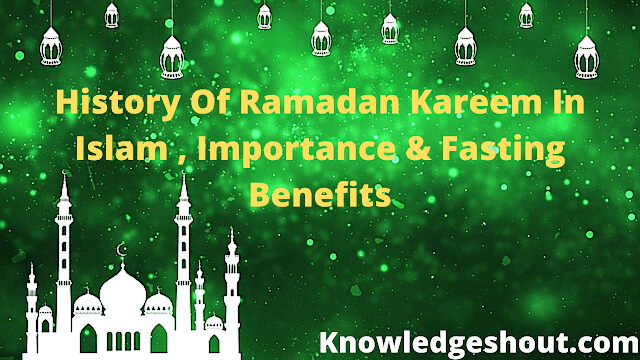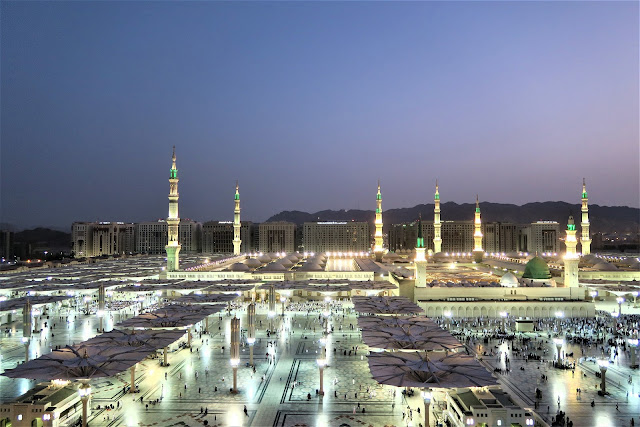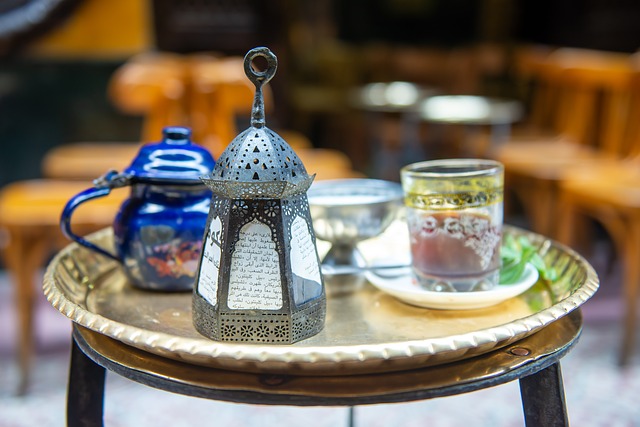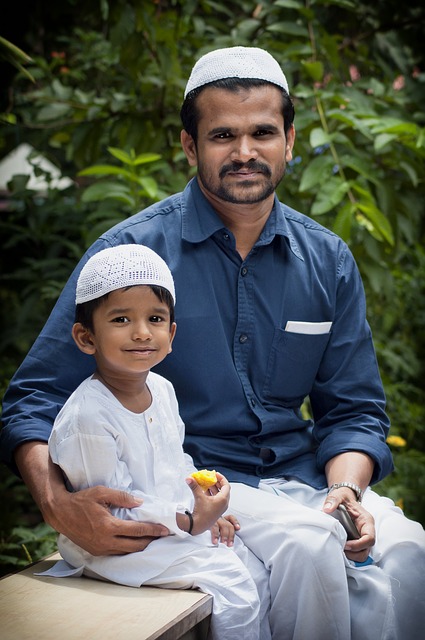What Do You Mean By Ramadan Kareem?
Ramadan Kareem is the most Holy Month Of Islam, and we can describe this month. Ramadan means the Burning of evil deeds. Ramadan was established as a Holy Month for All Muslims According to the Holy Quran, Hadith, "This Holy Book was revealed By GOD to His beloved Last Holy Prophet Muhammad(PBUH)in 610 CE on the Blessed night as Known as Laylat al-Qadr"(Night of Power) and the celebration of this month is mention in the Holy Quran in, Surah#2, Ayah# 185: ALLAH (The Great Lord) Says "The month of Ramadan is that in which was admit the Holy Qur'an, Direction for the people and clear confirmation of guidance and Principle. So whoever sights the new moon of the month, let him fast (sawm(Arabic), fast) it; and whoever is ill or on a journey then an equal number of other days. The Purpose of GOD for your raise and does not Expect for you hardship and wants for you to complete the period and to glorify, ALLAH for that to which He has to Educate you, and maybe you will be grateful."
Readout: Lailatul Qadr- It's Importance & Hadith Three Stages (Ashras) of Ramadan Kareem:
The month of Ramadan Kareem Is Divided into three Ashras, And each Ashra has particular importance (prayers). The first 10 days Of Ashra starts from 1st and ends on the 10th day of Ramzan (1th to 10th), the 2nd 10 Days of Ashra is Start from 11 to 20th, while the third and final 10 days of Ashra is Start from 21st to 30th. First, Ashra reflects it emulate Mercy's Blessing of ALLAH, so that is why it's known as Ashra-e-Rehman. Second, Ashra demonstrates the grace of ALLAH. That's why it is called Ashra-e-Maghfirah. Third and Final, Ashra reflects Safety from Hell. It is known as Ashra-e-Nijat (Free From Hell).
This Holy Month is full of blessings, Mercy, and Forgiveness for sure. It's the best opportunity, Golden Chance, for all the Muslims to collect more blessings of ALLAH and pray for their grace and to be saved from Hell.
First Ashra of Ramadan
Kareem(Mercy):
As I told you before, the first Ashra starts from (1st to 10th) days. The Very 1st ten days of Ramadan Kareem are the days of Mercy and Blessing. All Kind of Muslim Community must seek the Mercy, Blessings of Almighty ALLAH in these 1st 10 days. There is a particular verse of the Holy Quran that is usually reciting by Muslims in the first 10 days. as I Told you once Before, The Dua(prayer) for the 1st Stage is Translation (Quran): "O! My Lord ALLAH forgive and Have Mercy, Blessing and You are the Best of Merciful." The objective of 1st Ashra is to practice being merciful to each other and giving charity (Zakat).
Second Ashra of Ramadan Kareem
(Forgiveness):
The 2nd Ashra is consists of the next 10 days; it is the time of Forgiveness. These are the Most Important days of Apologies, and The Muslims must seek grace from To our Almighty ALLAH and Regret all his Misbehave. And particular verse In Holy Quran that is usually reciting by all Muslims in the next 10 days (10th-20th). The Dua(prayer) for the 2nd Ashra Of Ramadan Kareem is, Translation (Quran): "I ask Grace of my Sin from ALLAH, is my GOD and I turn towards Him." It's the time where the Grace of Almighty ALLAH is at its Peak, and this is the best time for asking about Forgiveness for all the sin from Almighty ALLAH. Always ask for Forgiveness from Almighty ALLAH in all these days of Ramadan Kareem. Do make sure to not repeat the be-immoral after you seek forgiveness".
Third Ashra of Ramadan Kareem
(Nijat):
The 3rd Ashra of Ramadan Kareem starts from 20th to 29th Some times 30th (Ramadan Kareem, according to the Islamic Calendar). Protection from the Hellfire, which means Nijat (Freedom). At the end of Ramadan, Kareem is about seeking ALLAH Almighty. All Muslims must pray for the Protection from Hellfire. The last stage is very important and superior then 1st and 2nd Ashra. In this Ashra, Lailatul Qadar, (night of power )also falls, which is better than the nights of thousand months (Mention in the Holy Quran). Many Muslims also practice Aitkaf (stay at the Mosque) and try to maximize their prayers. ALLAH Almighty stated in the Holy Quran about Lailatul Qadar: "We sent the Holy Quran down on this blessed Night."
Dua for 3rd Stage is Translation (Quran): "O my Allah Protect me from the Hell." Allah Only Knows Best, and He is the Only Source of Strength, and All Powers Belongs to ALLAH). May ALLAH gives us the willpower to seek ALLAH's Blessings, Grace and Free from Hell, Ameen Sum Ameen.
Famous Hadiths About Ramadan
Kareem:
- If the value of this month is Known by Muslims, they pray and wish to ALLAH make This whole year was Ramadan.
- It is the month of Blessings, and if one's Crime is not forgiven in this Ramadan, there is not much Expect in Forgiveness or Blessing of them for the rest of the year.
- The Holy month of ALLAH.
- The month of eternal grace and blessings.
- The month of flaming sins (evil deeds).
- The month of the double Reward.
- The spring of the Holy Qur'an.
- During Ramadan, the gates of Hellfire are closed.
- The month during which the gates of Heaven open.
- The month in which devils or Satans are chained (locked).
- In this month in which will be heard as a Great sign of the appearance of our 12 Holy (Imam Muhammad Mahdi (A.S).
Fasting During Ramadan Kareem:
The Holy Month of Ramadan Kareem is a time of Divine reflection, self-improvement means to clean your heart pure inside, and Intensive devotion and worship. The fast "swum" (Arabic word), Fast begins at Mid-night and ends at sunset. In Extension, to Pass up from eating and drinking during this time, All Muslims avoid sexual relations and sinful acts and don't use bad words about anything. The act of fasting is said to change the heart away from malicious activities. Its primary purpose to clean up the soul by freeing it from harmful impurities. Muslims believe that Fast teaches them to practice self-discipline and improve them-selves, self-control, sacrifice, and sympathy for those who are less fortunate, thus encouraging actions of generosity, kindness, hospitality, and compulsory charity (zakat).
The exception to fasting includes travel or visit, tour, Sickness, pregnancy; however, many Muslims with medical conditions unclear who insist on fasting to satisfy their spiritual needs, although it is not recommended by hadith. Those unable to fast are obligated to make up the missed days later.
Now we can Discuss Suhoor at mid-night. Muslims observe a pre-fast meal known as the Suhoor. After stopping a short time mid-night, Muslims begin the first prayer of the day, called Fa-jr. As for If-tar At sunset, family members break the Fast with the if-tar, Normally opening the meal by eating after If-tar, Muslims ready for the Maghreb.
The Charity (Zakat) and often translated as "the poor-rate," is the fixed-rate percentage of income a believer is required to give to the poor-persons the practice is obligatory as one of the fundamental pillars of Islam. Muslims believe that good deeds are rewarded more nobly during Ramadan Kareem.
Read more: How Eid Celebrated By Muslims
Eid al-Fitr Gift of Ramadan
Kareem:
After The end of the Ramadan Kareem, all Muslims celebrate Eid al-Fitr In simple words, This event is Rewarded by ALLAH (GOD) to all Muslims, which is one of the two major religious holidays of the Islamic calendar. The other, Eid al-Adha, marks the end of the hajj when the pilgrimage to Holy Makkah that all Muslims are expected to perform at least once in their lives if they are financially and physically able. In some communities, Eid al-Fitr is quite busy when children wear new clothes, women dressed up. They making special foods, sweets and gifts are exchanged by each other, people gather for family meals and to pray in mosques.









![How To Create First Blog On Blogger Platform [Complete Setup on New Interface]](https://blogger.googleusercontent.com/img/b/R29vZ2xl/AVvXsEjjzPs3aearQOzRaRiZ5AzRHVJaHp5kYUllB_RWAWrEXJCvUKV3GnYvUDtr21rKw_g5V2F8ciDd3ro1mGd7vmy_Qb4KB0s_bG4m1qqojxW5dEpj2YWWUe4S8Z306NnhmOmi22-ceRqcCmpd/w100/how+to+setup+your+blog.jpg)
0 Comments
If you have any doubt kindly ask here